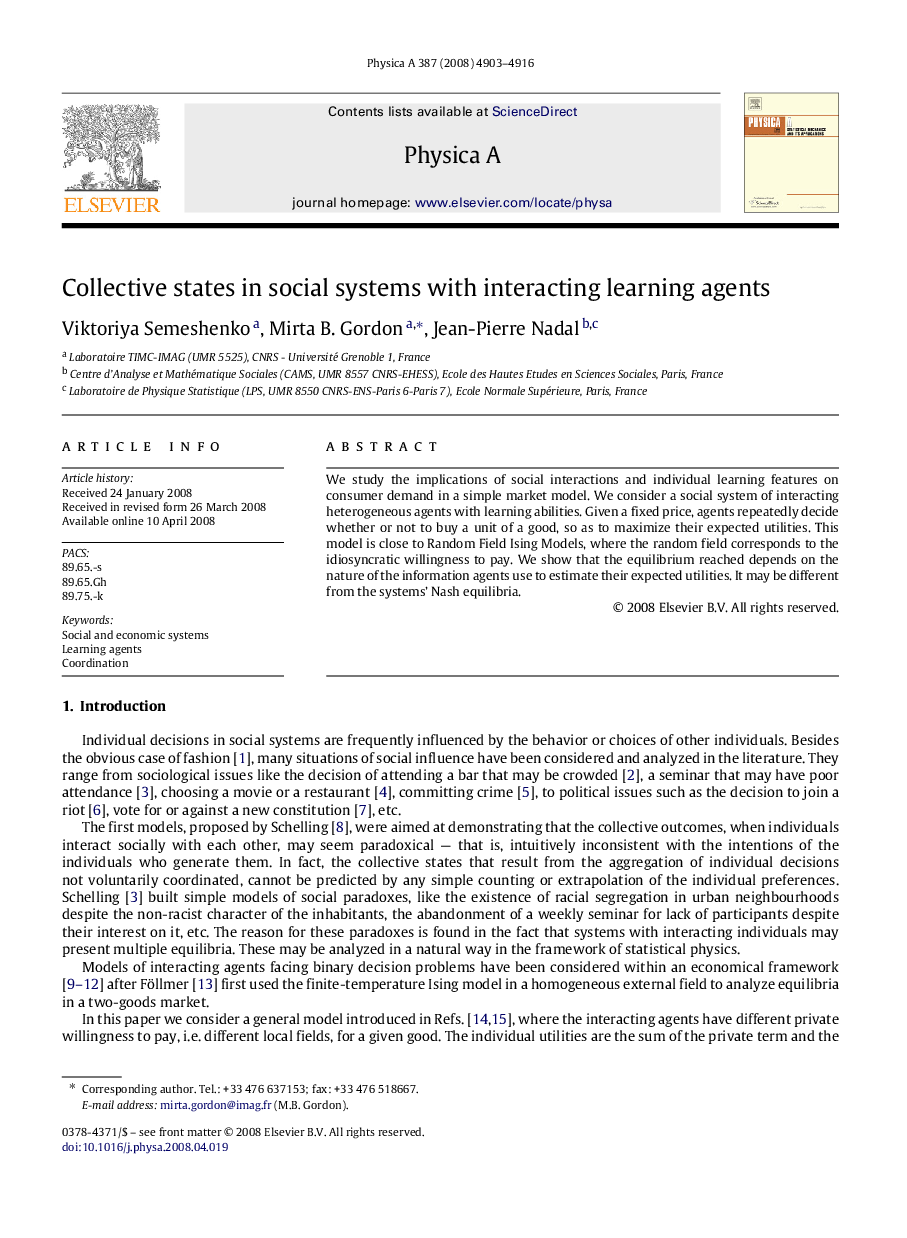| Article ID | Journal | Published Year | Pages | File Type |
|---|---|---|---|---|
| 976432 | Physica A: Statistical Mechanics and its Applications | 2008 | 14 Pages |
Abstract
We study the implications of social interactions and individual learning features on consumer demand in a simple market model. We consider a social system of interacting heterogeneous agents with learning abilities. Given a fixed price, agents repeatedly decide whether or not to buy a unit of a good, so as to maximize their expected utilities. This model is close to Random Field Ising Models, where the random field corresponds to the idiosyncratic willingness to pay. We show that the equilibrium reached depends on the nature of the information agents use to estimate their expected utilities. It may be different from the systems' Nash equilibria.
Related Topics
Physical Sciences and Engineering
Mathematics
Mathematical Physics
Authors
Viktoriya Semeshenko, Mirta B. Gordon, Jean-Pierre Nadal,
